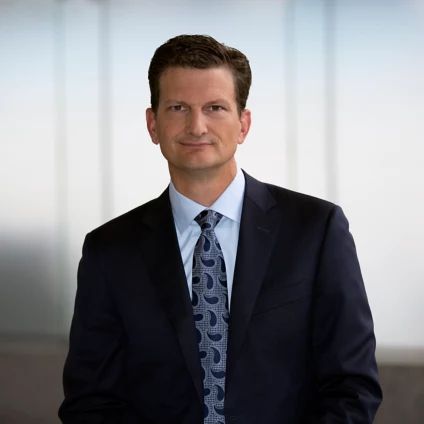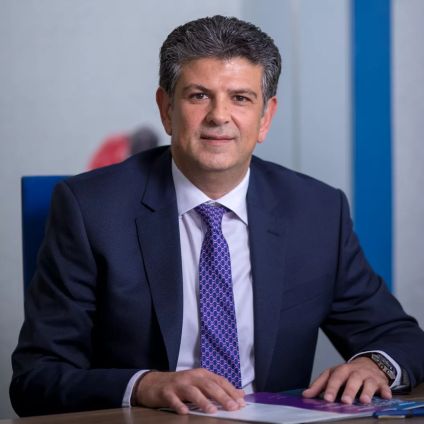Global CEOs grappling with multiple challenges, including geopolitical pressures, but majority remain confident on three-year outlook
- Geopolitics and political uncertainty now ranked as the greatest risk to growth despite not being considered a top five risk last year
- CEOs increasingly weighing up the return-to-work dilemma, with 87 percent considering linking rewards, raises or promotions with office attendance
- 68 percent of CEOs indicate that their current ESG progress isn't strong enough to withstand the potential scrutiny of stakeholders or shareholders
- CEOs cite ethical challenges as the number one concern when it comes to implementing generative AI (57 percent)
Nicosia 17 October 2023 — Geopolitics and broader political uncertainty are now the greatest risk to business growth, according to a survey of more than 1,300 CEOs of the world's largest businesses.
The KPMG 2023 CEO Outlook reveals geopolitics and political uncertainty have become the leading perceived risk this year for senior executives — concerns that didn't even make the top five in the 2022 survey.
While confidence in the global economic outlook over the next three years remains broadly unchanged since last year's survey (73 percent compared to 71 percent last year), there has been a significant shift across CEOs' views on what constitutes a risk to their business.
Over three quarters of CEOs (77 percent) say rising interest rates and tightening monetary policies could risk or prolong the threat of a global recession. Meanwhile, over three in four CEOs (77 percent) believe that cost of living pressures are likely to negatively impact their organization's prosperity over the next three years.
The persistent flux in global politics, trade dynamics and international relations has compelled CEOs to reassess their strategic priorities and demonstrate resilience in navigating the intricate interplay of global political forces.

Business leaders are facing challenges and obstacles to growth
on multiple fronts — from geopolitical uncertainty and
politicization to increased stakeholder expectations in the ESG
space and the adoption of generative AI.
What I find reassuring is that, despite the many macroeconomic and
geopolitical challenges right now, mid-term global confidence
remains relatively robust. There's a consensus that we can, in
time, return to a path of international, sustainable long-term
growth.
For CEOs — the opportunity to drive a return to a more
equitable, successful planet is right in front of us. The key to
success will be an unrelenting focus on long-term, strategic
planning and commitment to avoid the danger of short-term, reactive
leadership, which is always a threat during a period of deep
uncertainty."
Bill Thomas
Global Chairman & CEO
KPMG International

"Τhe KPMG 2023 CEO Outlook shows us that, despite the complex challenges over the past year with geopolitics and political uncertainty being the biggest threats to growth prospects, CEOs continue to trust their organisations, and feel prepared enough to stay ahead and build a stable business for the future. Even though half of the CEOs expect a return on investment in three to five years, they are still investing heavily in generative AI, while also recognize that ESG should remain part of their business operations and long-term corporate strategies.
While there is still debate between hybrid working and the return to the office, the majority of the CEOs predict a full return to in-office work within the next three years. Certainly, some sort of hybrid working is likely to remain a useful way to attract and retain talent, while having the right employee value proposition is near the top of the priority list for CEOs in our survey. In the long run, however, CEOs appear optimistic and confident about the outcome of their business operations".
Christos Vasiliou
Managing Director
KPMG Cyprus
The debate over hybrid working and the return-to-office persists
CEOs are increasingly steadfast in their support of pre-pandemic ways of working, with a majority (64 percent) predicting a full return to in-office work within the next three years. An overwhelming 87 percent of CEOs surveyed express a likelihood of linking financial reward and promotion opportunities to a return to in-office working practices.

The data underscores the immense pressure on CEOs to make quick decisions on the big issues. The war for talent may have softened in this period of economic uncertainty, but the evidence suggests a one-size-fits-all approach to return-to-office could be detrimental. It's crucial that leaders take a long-term view that embraces the employee value proposition and encompasses the considerations and needs of everyone, to help ensure that talent is nurtured and supported.
Nhlamu Dlomu
Global Head of People
KPMG International
CEOs continue to prioritize ESG despite polarizing discourse
Despite a year of polarizing debate surrounding the term ESG, CEOs recognize that delivering against the environmental, social and governance issues remains an integral part of their business operations and long-term corporate strategies. This is supported by 69 percent of CEOs who have embedded ESG into their business as a means of value creation.
Reflecting a shift in awareness and dialogue on ESG, 35 percent of CEOs have changed the language they use to refer to ESG both internally and externally. This signals a trend towards CEOs getting more specific about each aspect of the acronym and prioritizing their efforts where they can have the most impact.
However, CEOs believe that they are still a few years away from seeing a return on their ESG investment. Those surveyed believe that ESG will have the greatest impact over the next three years on their customer relationships, brand reputation and M&A strategy.
CEOs understand that their role continues to be increasingly driven by public and investor pressure, with 64 percent believing that, as trust in some institutions decline, the public expects business to fill the void of societal changes.

Despite increasing economic and political uncertainty, the latest survey findings reflect a growing sense of resilience and focus from CEOs on ESG. Topics like the climate crisis have become polarized in some regions, but business leaders have told us they're prepared to take tough, ethical decisions and stances to ensure that they play a positive role in driving the transition to more sustainable operations, which benefits everyone. With continued financial and geopolitical pressures ahead, it will undoubtedly be a test of nerves for many CEOs, but the data shows that the vast majority of senior executives are now fully onboard and recognize that E, S, and G are no longer optional extras for successful, sustainable businesses.
John McCalla-Leacy
Head of Global ESG
KPMG
Ethical challenges surround generative AI but are not stifling investment
The findings show that CEOs are continuing to invest heavily in generative AI in search of a competitive edge for the future, listing the technology as a top investment priority in the medium term. Seventy percent of CEOs agree that generative AI remains high on their list of priorities, with most (52 percent) expecting to see a return on their investment in three to five years.
Despite a willingness to push forward with their investments, CEOs cited ethical challenges as their number one concern in terms of the implementation of generative AI. The cost of implementation was ranked second (55 percent) and a lack of regulation and technical capability were jointly third (50 percent).

Generative AI is an increasingly hot topic in board rooms with leaders looking to better understand its potential and how to implement this technology in their business strategies. The challenge is spending the money in the right places and having the right skills to fully exploit the opportunities it presents. AI is unquestionably the internet moment of our time. It's essential for CEOs to lead from the front, ensuring their organizations develop or adopt responsible, robust AI frameworks, upskill their workforce and relentlessly focus on safeguarding and governance — to reinforce that AI can genuinely unlock value for the business, its people and wider society.
Lisa Heneghan
Global Chief Digital Officer
KPMG International
To view additional information about the survey please visitkpmg.com/ceooutlook. You can also follow @KPMG on LinkedIn and X (Twitter) for updates on the conversation with #CEOoutlook.
For media queries, please contact:
Kathryn Wright
Director, External Communications
KPMG International
+44 7880 784296
Kathryn.wright@kpmg.co.uk
About the KPMG CEO Outlook
The 9th edition of the KPMG CEO Outlook, conducted with 1,325 CEOs between 15 August and 15 September 2023, provides unique insight into the mindset, strategies and planning tactics of CEOs.
All respondents have annual revenues over US$500M and a third of the companies surveyed have more than US$10B in annual revenue. The survey included CEOs from 11 key markets (Australia, Canada, China, France, Germany, India, Italy, Japan, Spain, UK and US) and 11 key industry sectors (asset management, automotive, banking, consumer and retail, energy, infrastructure, insurance, life sciences, manufacturing, technology, and telecommunications). NOTE: some figures may not add up to 100 percent due to rounding.
About KPMG International
KPMG is a global organization of independent professional services firms providing Audit, Tax and Advisory services. KPMG is the brand under which the member firms of KPMG International Limited ("KPMG International") operate and provide professional services. "KPMG" is used to refer to individual member firms within the KPMG organization or to one or more member firms collectively.
KPMG firms operate in 143 countries and territories with more than 265,000 partners and employees working in member firms around the world. Each KPMG firm is a legally distinct and separate entity and describes itself as such. Each KPMG member firm is responsible for its own obligations and liabilities.
KPMG International Limited is a private English company limited by guarantee. KPMG International Limited and its related entities do not provide services to clients.
For more detail about our structure please visit: kpmg.com.

